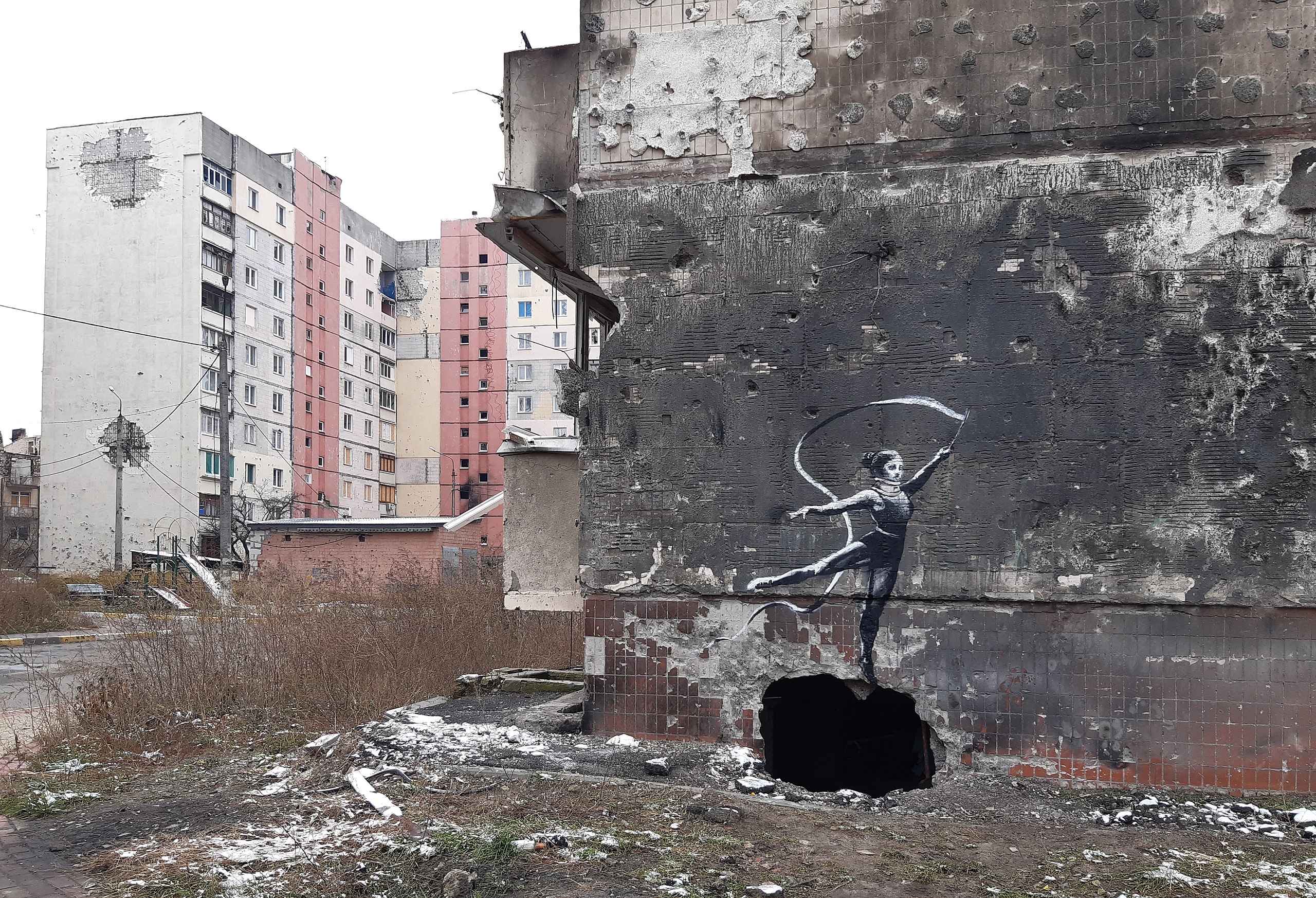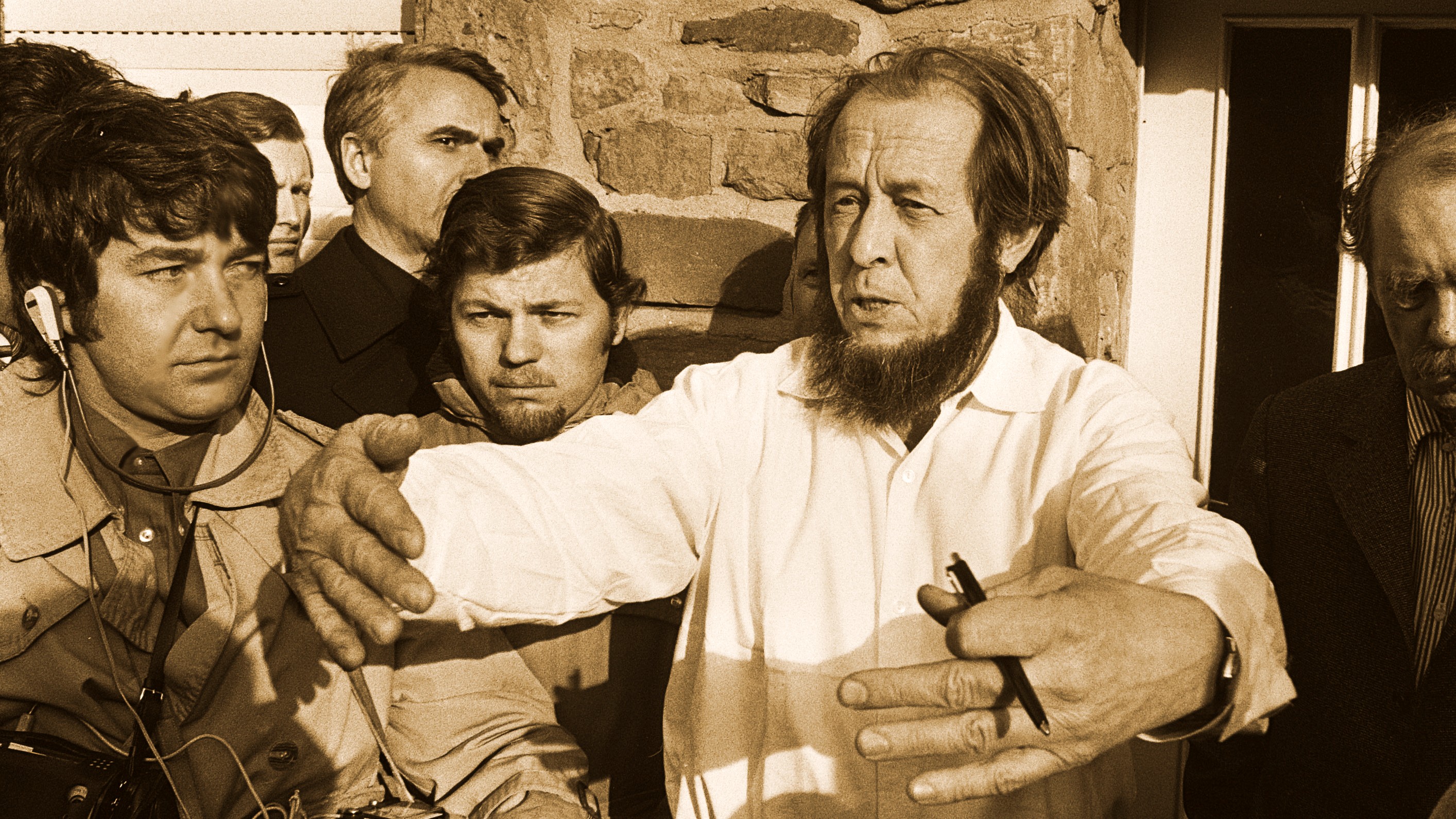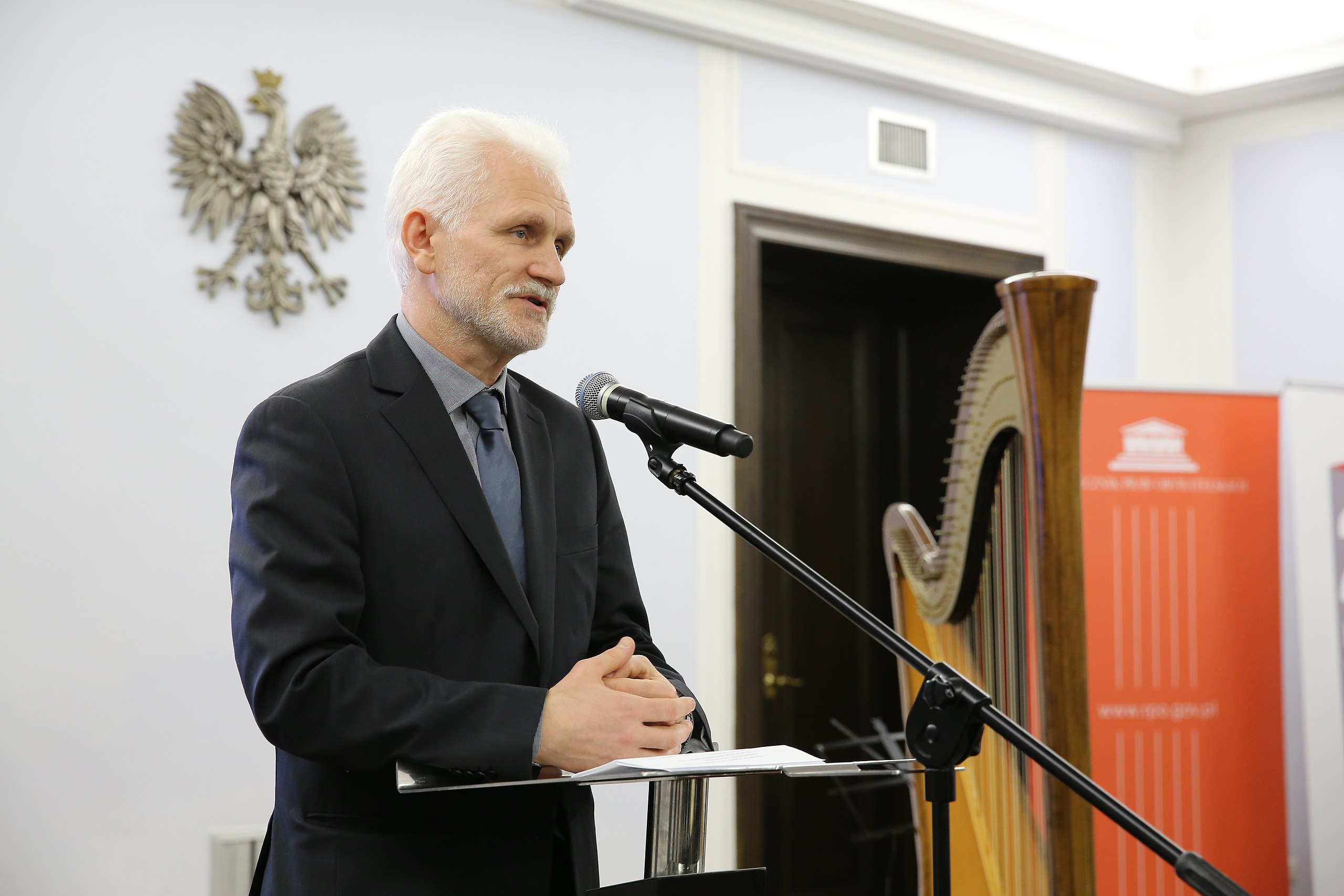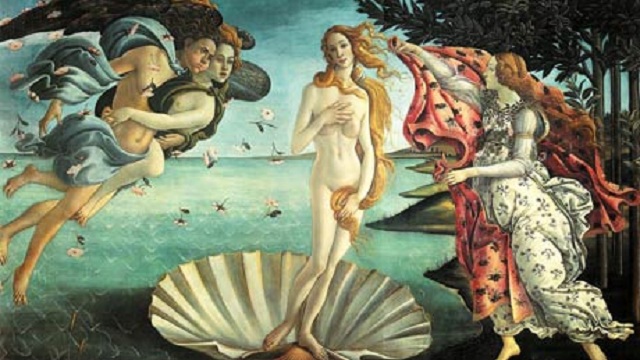Subversive Art and Russia’s Protest Movement
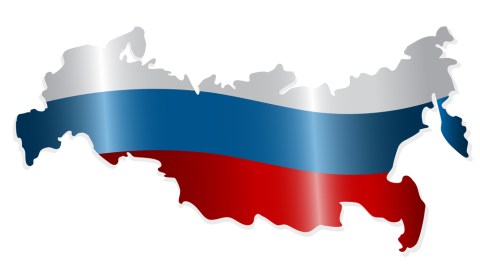
What is the Big Idea?
Graffiti artist P183, whose real name is Pavel, canvasses the streets of Moscow at night armed with a can of spray paint. One of his murals depicts a grandmother and child holed up in a shelter with a bomb looming overhead. This is P183’s commentary on Vladimir Putin’s March 4 return to the presidency.
“Russia is in a permanent state of war between different factions trying to seize power,” he told Le Temps in an interview. “There’s nothing ordinary people can do. Grandmothers, children, workers… They have no choice. “
Pavel shies away from the camera during the interview, covers himself with his balaclava, and prefers to keep the public at bay so he can “continue his flirtations with illegality.”
He also creates eye catching guerrilla art installations. A girl hangs Christmas ornaments on barbed wire, a giant fork impales a field of spaghetti made of industrial tubing.
Moscow’s walls serve as “the best place to reach people directly and create personal atmospheres.” His nights usually entail a chase by the local police that ends at the police station.
Check out a slideshow of his artwork here.
What is the Significance?
First it was Pussy Riot with punk rock and now it’s P183 and his graffiti art. Russia’s subversive and artistic expression is emblematic of the country’s anti-Putin sentiments and increasing civic awareness.
“Anti-Putin protests are the best thing that has happened to Russia in recent years,” Pavel says. “Those who take to the streets are not afraid of anything. It’s the birth of a civil society in Russia. “
But since the election on March 4, the protests are shrinking and the opposition needs to get down to business. So where does the opposition go from here?
Mark Galeotti, expert on modern Russia, was in Moscow during the election and he made a stop at Big Think upon his return. What he witnessed was smaller crowds and a wake up call for the opposition to get serious now that Putin is back in office.
“I don’t think it’s necessarily they’re starting to feel defeated,” said Galeotti. “It’s more that they’ve realized that protests in Moscow are great, but that doesn’t translate into support across the country. I think what’s needed now is going to be a shift to a completely different type of movement, one that actually can reach out to other constituencies, so not so much defeat, but certainly realizing that it’s going to be a longer struggle than they thought.”
So how can they accomplish this?
“Well they have to start getting involved in the really boring elements of politics,” he said. “It’s been extraordinary what they’ve done in the last three months. What they now have to do is to begin to form parties, to reach out to other interest groups, other regions, other classes and so forth and it’s going to take a long time and in the process the opposition is almost by definition going to fragment.”
Artist acts like Pussy Riot and P183 have a unique metropolitan appeal for middle class, educated Moscowians. Provincial Russians would be shocked by their activity, says Galeotti. This further underscores the need to organize and find ways to reach those outside of Moscow.
For those who missed it, check out Mark Galeotti’s LIVE interview here:

